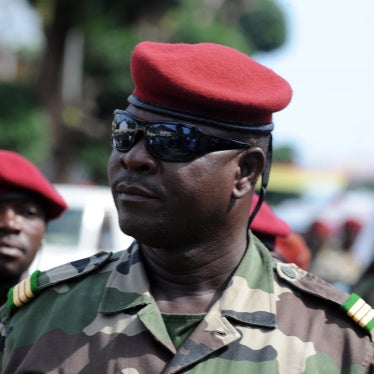(Geneva) – The International Criminal Court’s sentencing on September 27, 2016 of Ahmad al-Faqi al-Mahdi for his role in destroying historical and religious monuments in Timbuktu, Mali, sends a clear message that attacking the world’s historical treasures will be punished.
In August, al-Mahdi, a Malian national, pleaded guilty to the charge. This was the first time the ICC has tried an accused for this war crime and the first time an ICC defendant has pleaded guilty.
The ICC sentencing points to the need for the Malian government to take a more active role in prosecuting war crimes cases, Human Rights Watch said. The Malian government, which has primary responsibility for ensuring justice for the most serious crimes, has made scant progress in investigating, much less prosecuting, those responsible for the many grave offenses committed during Mali’s 2012-2013 armed conflict.
These include the summary execution of approximately 150 Malian soldiers in Aguelhok, sexual violence, and widespread pillage by various armed groups in the north, as well as the extrajudicial execution, enforced disappearance, and torture of suspected Islamist rebels by the Malian security forces.
“The ICC has rendered an important verdict, but the Malian government should follow suit and step up efforts to ensure investigations and fair trials for crimes committed by all sides during the conflict,” said Corinne Dufka, associate Africa director at Human Rights Watch. “Real justice for the victims and their families has been long in waiting.”
|
Statement
ICC: Clear Message on Attacking World’s Treasures
Sentencing of Ahmad al-Faqi al-Mahdi of Mali
Your tax deductible gift can help stop human rights violations and save lives around the world.
Most Viewed
-
June 3, 2025
“They’re Ruining People’s Lives”

-
January 25, 2024
“We’re Dying Here”

-
April 27, 2021
A Threshold Crossed

-
November 25, 2019
A Dirty Investment

-
November 19, 2012
Losing Humanity




